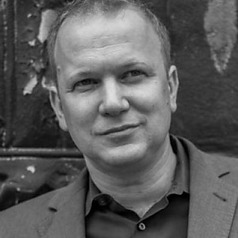Jeremy A. Greene, M.D., Ph.D., is William H. Welch Professor of Medicine and the History of Medicine and Director of the Department of the History of Medicine and the Center for Medical Humanities and Social Medicine at the Johns Hopkins School of Medicine. Greene’s research has broadly examines the ways in which medical technologies come to influence our understandings of what it means to be sick or healthy, normal or abnormal. Greene’s most recent book, Generic: The Unbranding of Modern Medicines, was published by Johns Hopkins University Press, and has led to invited testimony in front of the U.S. House of Representatives and the U.S. Senate regarding the rising prices of off-patent drugs. His first book, Prescribing by Numbers: Drugs and the Definition of Disease, was awarded the Rachel Carson Prize by the Society for the Social Studies of Science and the Edward Kremers Prize by the American Institute of the History of Pharmacy. In addition to published broadly about the history of disease in scholarly journals, Dr. Greene has published widely in clinical and public health journals including JAMA, the New England Journal of Medicine, the Lancet, the American Journal of Public Health, and Health Affairs, and for popular audiences such as the Washington Post, Slate, Forbes, The Atlantic, and The Boston Review, as well as broader public engagement via interviews on NPR, BBC, television news, and documentaries. Dr. Greene received an MD and a PhD in the History of Science from Harvard University in 2005, finished a residency in Internal Medicine at the Brigham & Women's Hospital in 2008, is board certified in Internal Medicine and a member of the American College of Physicians, and continues to practice primary care medicine in a community health center in East Baltimore. His current research project, The Electronic Patient: Medicine and the Challenge of New Media examines how changing expectations of instantaneous communications through electric, electronic, and digital media have transformed the nature of medical practice and medical knowledge. This research is focused on recapturing how seemingly mundane communications technologies have enabled and altered the production, circulation, and consumption of medical knowledge, from telegraph to text pager, telephone to telemedicine, fax machine to Facebook. He is currently working with other leaders in medical humanities and the Association for American Medical Colleges to help draft an AAMC report on The Fundamental Role of Arts and Humanities in Medical Education.
- Baltimore, Maryland, U.S.
- Website
- @jgreene2
- Article Feed
- Joined


